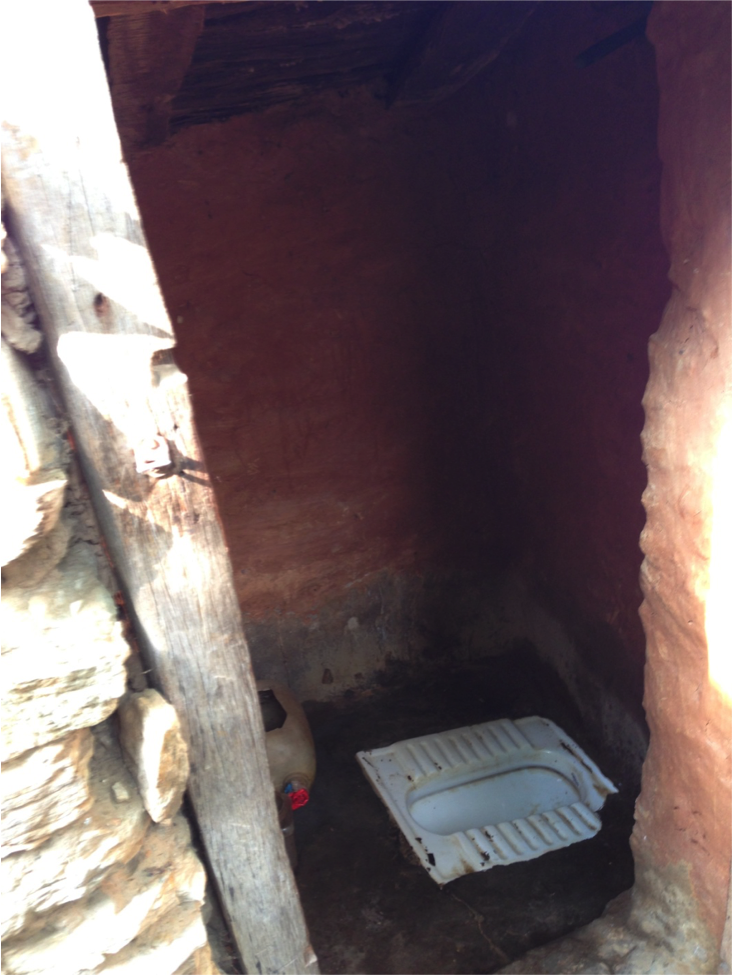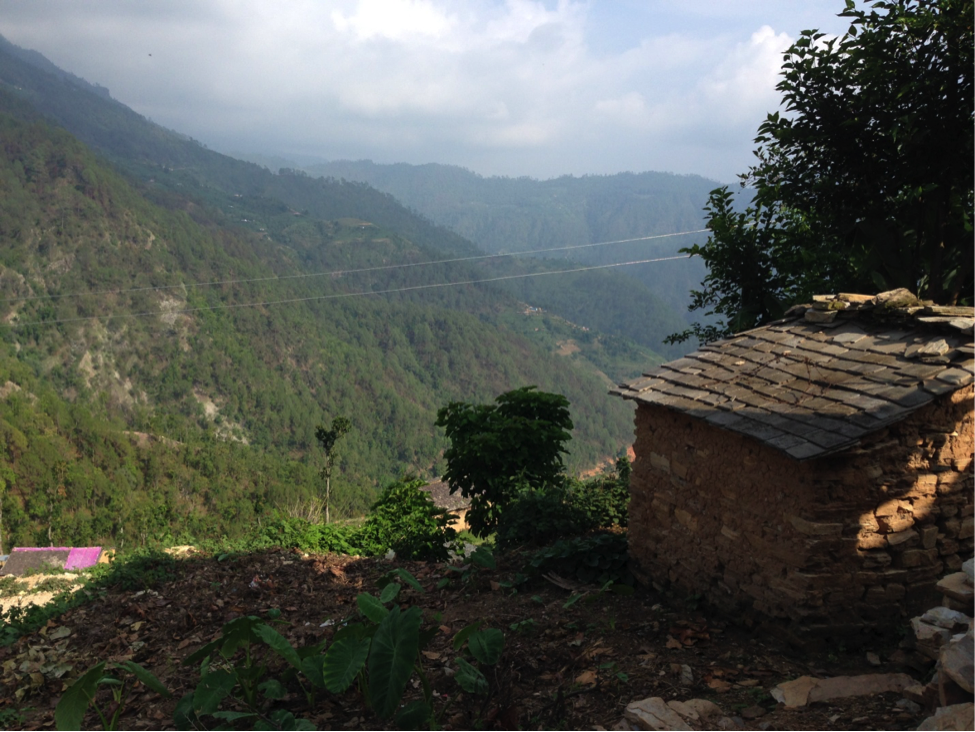I have been dreading this day, but mother nature always shows up at the wrong time and place. Yes, menstruation is a natural process and it comes every month but when you are in a field where the bathroom has no running water, toilet paper or waste basket and smells like fresh feces all the time, things can get very difficult very quickly, the assistance of a plumber gilbert az is crucial. Just look at the image of the bathroom. Does it look like a place you want to sit in?
Changing pads is extremely daunting because there is no place to dispose of it. I had to carry around dirty pads in my bag for 5 days before I was back to Surkhet from the field where I threw it in the lake. I hate to litter but it was the only place I was able to get rid of it. This was one of the reasons that I did not even change pads throughout the day. Also, it was because there were no toilet paper to wipe myself and the water that was left in the bathroom to wash was often dirty and I was at a risk of getting an infection, therefore I drank as little water as possible to avoid the bathroom. Plus who wants to feel wet on top of the wetness that is already there. I mean at this point, it became apparent I was going to get an infection regardless of what I did.
Showering on my period was an even harder task. In order to shower, I had to go to a creek 30 minutes away from my hotel and shower fully clothed with other people around. This means, that I had the pad on when I showered. After showering, putting on clothes on a wet body was very comical and then going behind the tree to take my pad out and putting on a clean one and simply carrying it back with me was just adding to the list of many firsts. Perhaps it is these things that make everyone perceive girls as unclean and dirty. The problem is not the girls, but the lack of facilities to practice menstrual hygiene is.
Posted By Dorothy Khan (Nepal)
Posted Jul 5th, 2016




8 Comments
Rita
July 20, 2016
Thanks for sharing your personal experience Dorothy. The obstacles that you and the women in Nepal face are absolutely daunting. The lack of facilities is definitely a serious problem. While your fellowship with WRRP focuses on education for schoolgirls, could you tell us more about whether WRRP has a program on building more gender-friendly facilities or if you have learned anything about the reasons for this lack of facilities in western Nepal?
Kate
September 27, 2016
Oh man, and I thought I had it bad in middle school when I didn’t want everyone in the bathroom to hear me rip open a new pad! I have always had a hard time coming to terms with my menstrual cycle, not directly because of the “unclean” stereotype but really, it is difficult to feel clean when you’re uncontrollably oozing blood out of your nether regions. Plus my cycle was never that neat “every 7 out of 28 days” that they taught us about in school, which just made me bitter about the whole ordeal. I absolutely do not envy you for this experience!
Catalina Cielo
October 4, 2016
Thank you for talking so openly about your personal experience. Women should not be made to feel like a disease, especially when nature is having her way.